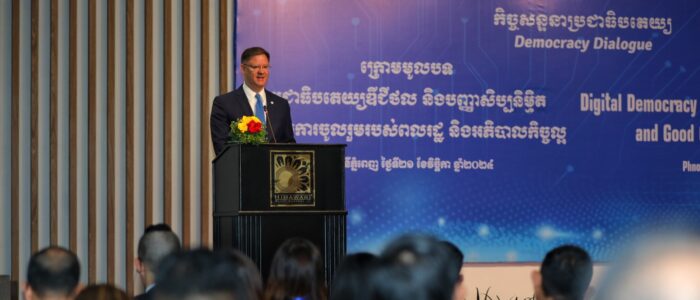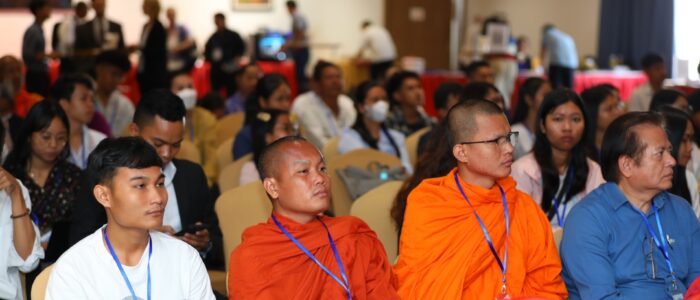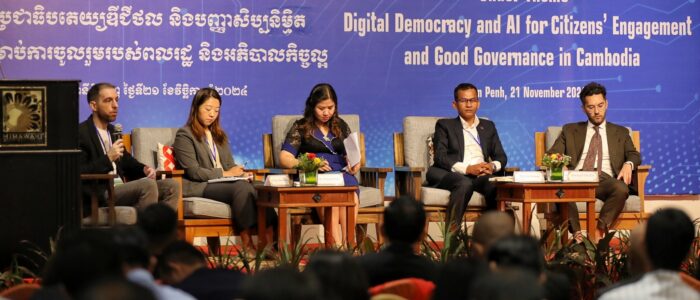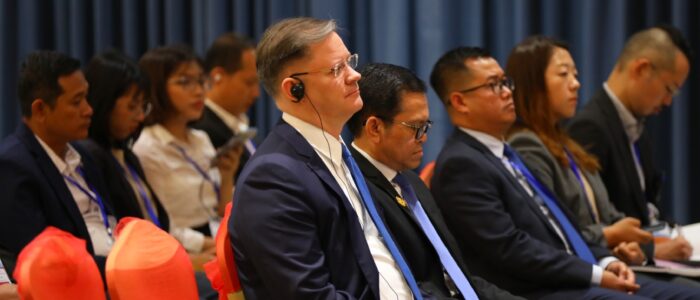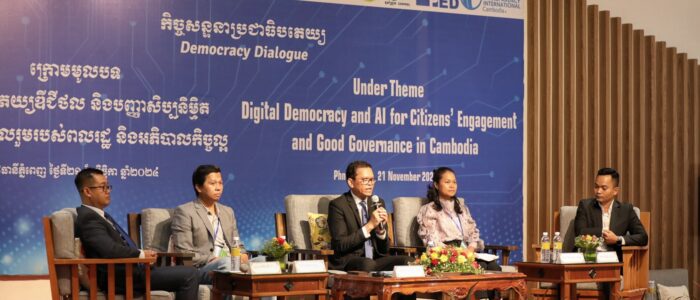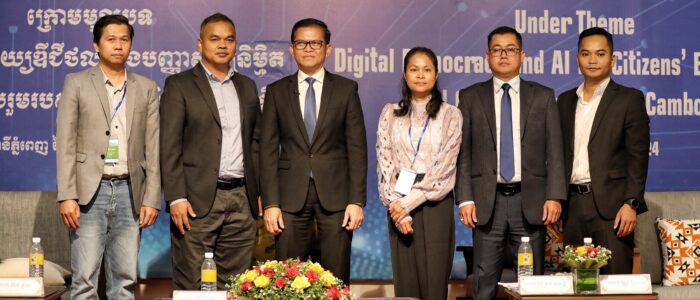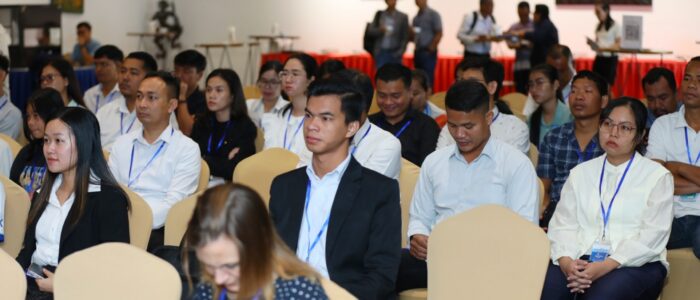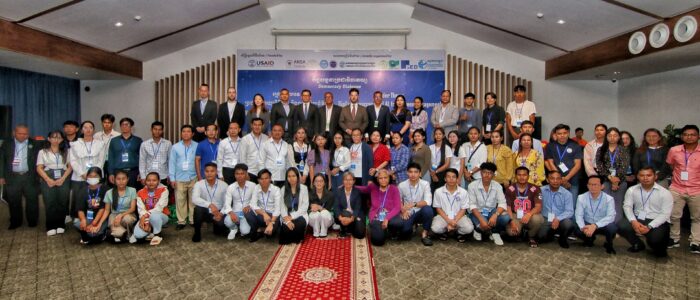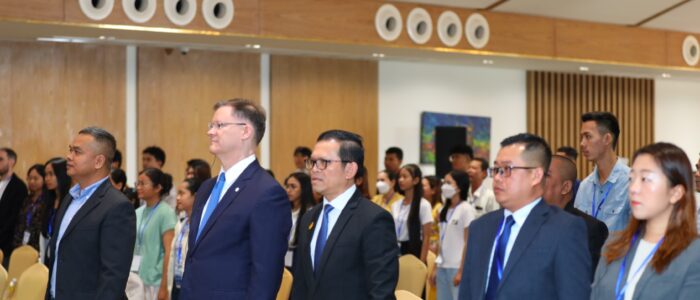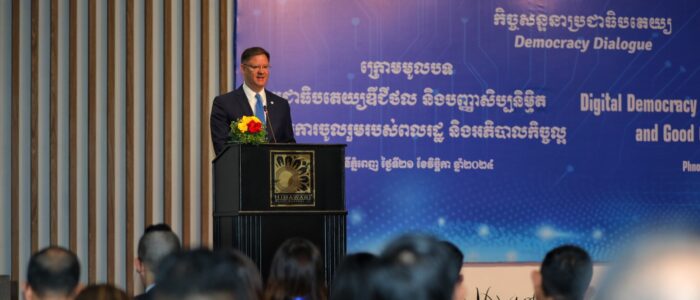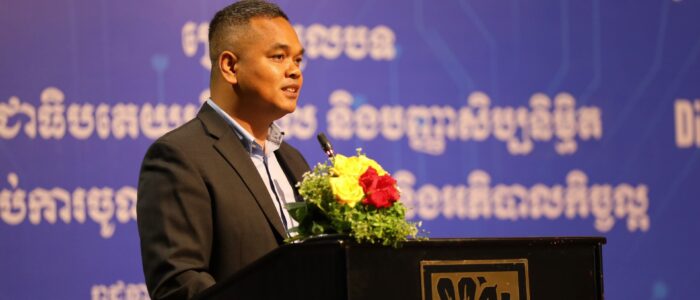Digital Democracy and AI for Citizens’ Engagement and Good Governance in Cambodia, November 21, 2024
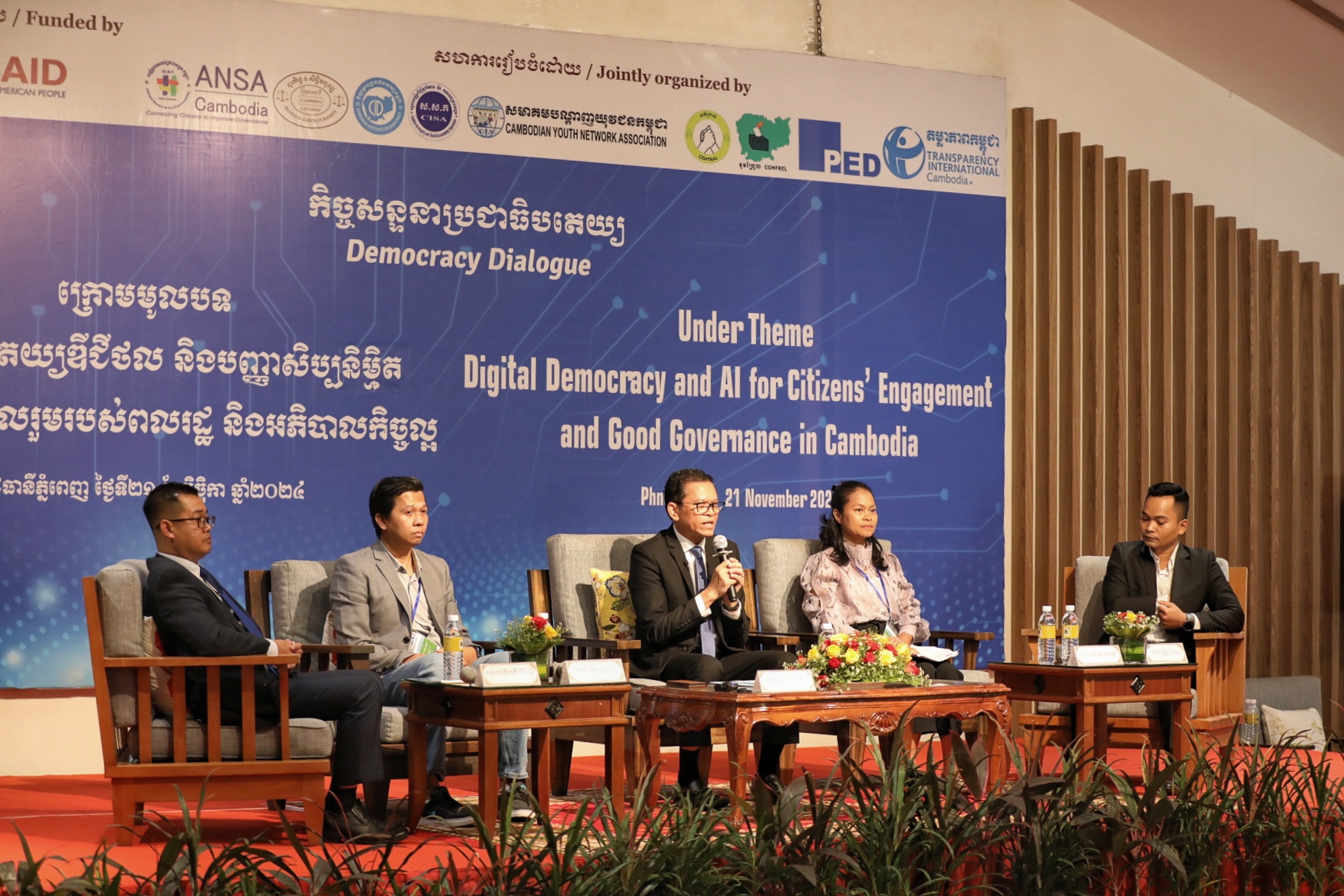
On November 21, 2024, the Cambodian Institute for Democracy (CID), in collaboration with Affiliated Network for Social Accountability (ANSA-Cambodia), Cambodian Youth Network Association (CYN), Partnership for Environment and Development (PED-Cambodia), Business and Human Rights Law Group (BHRLG), Coalition for Integrity and Social Accountability (CISA), Committee for Free and Fair Elections in Cambodia (COMFREL), Center for Alliance of Labor and Human Rights (CENTRAL), and Transparency International Cambodia (TIC) organize a democracy dialogue under the theme “Digital Democracy and AI for Citizens’ Engagement and Good Governance in Cambodia.” This event brought together 141 participants (53 of whom are female and one LGBTIQ+ person) including government representatives, members of various political parties, civil society organization workers, technology experts, union leaders, academics, researchers, youth leaders, journalists, community leaders, and international development partners. It provided a vibrant platform for discussing how digital tools and AI can strengthen democratic governance and citizen engagement in Cambodia.
Opening Remarks: PA Chanrouen, the President of CID, warmly welcomed the participants and outlined the objectives and flow of the event. He emphasized the importance of digital democracy, explaining that it involves leveraging technology to enhance governance, transparency, and citizen engagement. Digital democracy goes beyond simply using technology; it focuses on empowering individuals, creating opportunities for civic participation, and fostering inclusive governance. He noted that digital tools enable citizens to actively engage in decision-making, hold leaders accountable, and influence the policies that affect their lives. For governments, these tools can improve service delivery and enhance decision-making efficiency. Furthermore, he highlighted that Cambodia is experiencing a significant digital transformation under the Pentagon Strategy and the Cambodia Digital Government Policy 2022–2035. This transformation presents extraordinary opportunities to strengthen democracy and empower citizens. Digital democracy is essential because it empowers citizens, addresses the digital divide, promotes transparency and accountability, engages youth, and combats misinformation. Finally, he expresses his appreciation to all the participants and partners who make this dialogue come to live, with the generous support of the American people through USAID.
Panel discussion 1: Exploring Digital Democracy and AI in Enhancing Citizen Participation and Good Governance: Opportunities, Challenges, and Ethical Considerations. This session provides insights into creating a responsible framework for digital democracy that promotes active civic participation and improves governance. The discussion focuses on the transformative potential of digital democracy and artificial intelligence (AI) in fostering citizen engagement and enhancing good governance. The panellists examine how digital tools and AI increase transparency, accountability, and citizen involvement in public decision-making. The session also addresses how these technologies bridge the gap between citizens and government while highlighting challenges such as data privacy, misinformation, and the digital divide that hinder effective implementation. Additionally, the speakers also consider the ethical implications of using AI in democratic governance, emphasizing the importance of fairness, inclusivity, and respect for human rights. The session is moderated by Mrs. Lim Thida, Editor at the Cambodian Center for Independent Media, and features attendees such as Dr. Marc Pinol Rovira, Research Manager at Asia Centre; Ms. Wenjing Man, Project Officer at the UNESCO Phnom Penh Office; Mr. Jason Chumtong, Country Director of KAS Cambodia; and Mr. Sek Socheat, Independent Researcher.
Panel discussion 2: Panel Discussion 2: Fostering Multi-Stakeholder Collaboration and Crafting Recommendations for Using Digital Democracy and AI to Enhance Citizen Participation and Good Governance in Cambodia. This discussion creates an inclusive framework that supports democratic engagement and effective governance in Cambodia. It brings together key stakeholders from the government, civil society, the tech sector, and academia to explore collaborative approaches for leveraging digital democracy and artificial intelligence (AI) in the country. The session focuses on strategies that strengthen citizen participation and promote transparent governance through digital tools, addressing the unique challenges and opportunities within the Cambodian context. Panelists discuss best practices for building multi-stakeholder partnerships and develop actionable recommendations for the responsible implementation of digital democracy and AI. The session is moderated by Mr. Vann Bunna, Head of Research and Advocacy at CYN. Attendees include H.E. Pen Bona, Minister Delegate to the Prime Minister and Chairman of the Royal Government Spokesperson Unit; Brig. Gen. LY Vandy, Director of the Digital Security Department at the Ministry of Interior; Mrs. Chhan Sokunthea, Executive Director of the Cambodian Centre for Independent Media; and Mr. Moses Ngeth, Digital Security Consultant.
Closing remark: Dr. Meas Nee, Board Member of CID, emphasized the importance of AI in the education system, particularly in addressing Cambodia’s challenges regarding digital education and transformation. He identified four key points about AI education in Cambodia: 1. The need for self-driven digital development and adoption within the country. 2. The necessity of creating fair and equitable laws to regulate AI and technology in alignment with the country’s Constitution. 3. The importance of maintaining a political space conducive to AI and technological development. 4. The potential for digital advancements to enhance good governance and drive economic development.

